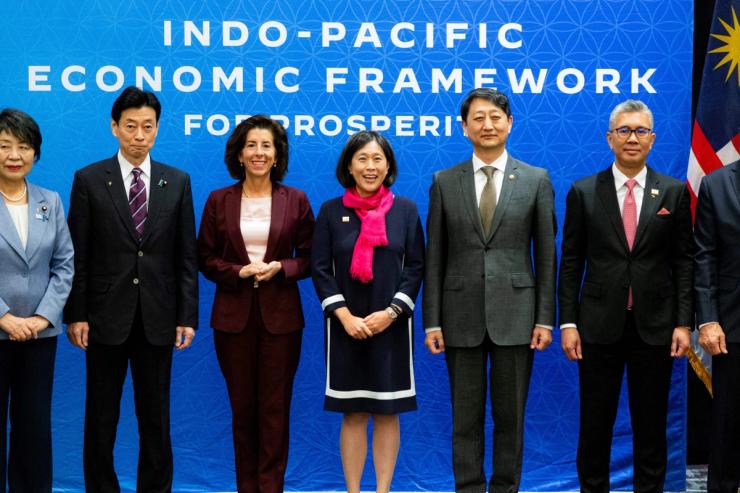The Scoop
An agreement negotiated between the U.S. and 13 other countries to secure global supply chains will take effect on Feb. 24, the Commerce Department is announcing Wednesday.
The supply chain talks under the Indo-Pacific Economic Framework began nearly two years ago with the goal of increasing collaboration between the U.S. and countries in the Asia-Pacific to reduce supply chain shortages like those caused by the COVID-19 pandemic. The agreement establishes a “crisis response network” to provide early warnings about potential disruptions, among other actions.
The U.S. and other countries signed the supply chain agreement in November at the Asia-Pacific Economic Forum summit in San Francisco, but it only goes into full force after at least five countries ratify or approve it (the U.S., India, Japan, Singapore and Fiji have all done so, according to the Commerce Department).
With the agreement taking effect, the countries now face spring deadlines to choose representatives and leaders for the crisis response network and two other bodies — a supply chain council and labor rights board — established by the pact. Countries are also supposed to submit a list of critical sectors and goods within 120 days of Feb. 24, according to Commerce.
Morgan’s view
IPEF, the Biden administration’s signature economic initiative for the Asia-Pacific, has probably attracted the most attention for the collapse of the trade portion of the talks last year. President Biden faced pushback from members of his own party over the negotiations, and the White House reportedly backed away from the effort.
But the administration has still made some progress on other aspects of IPEF and will hold up the supply chain announcement as a key achievement. It’s the first part of IPEF to come into full effect.
In a statement, Commerce Secretary Gina Raimondo said the negotiations were delivering “tangible outcomes in record time.” The countries “will now move forward and work collaboratively through this innovative framework with the goal of strengthening our supply chains and preventing potential disruptions before they arise for the collective benefit of our countries’ workers and businesses,” she said.
The Commerce Department, which oversees three of the four “pillars” of the initiative, announced in November that the countries had also concluded negotiations on clean energy and anti-corruption agreements.


